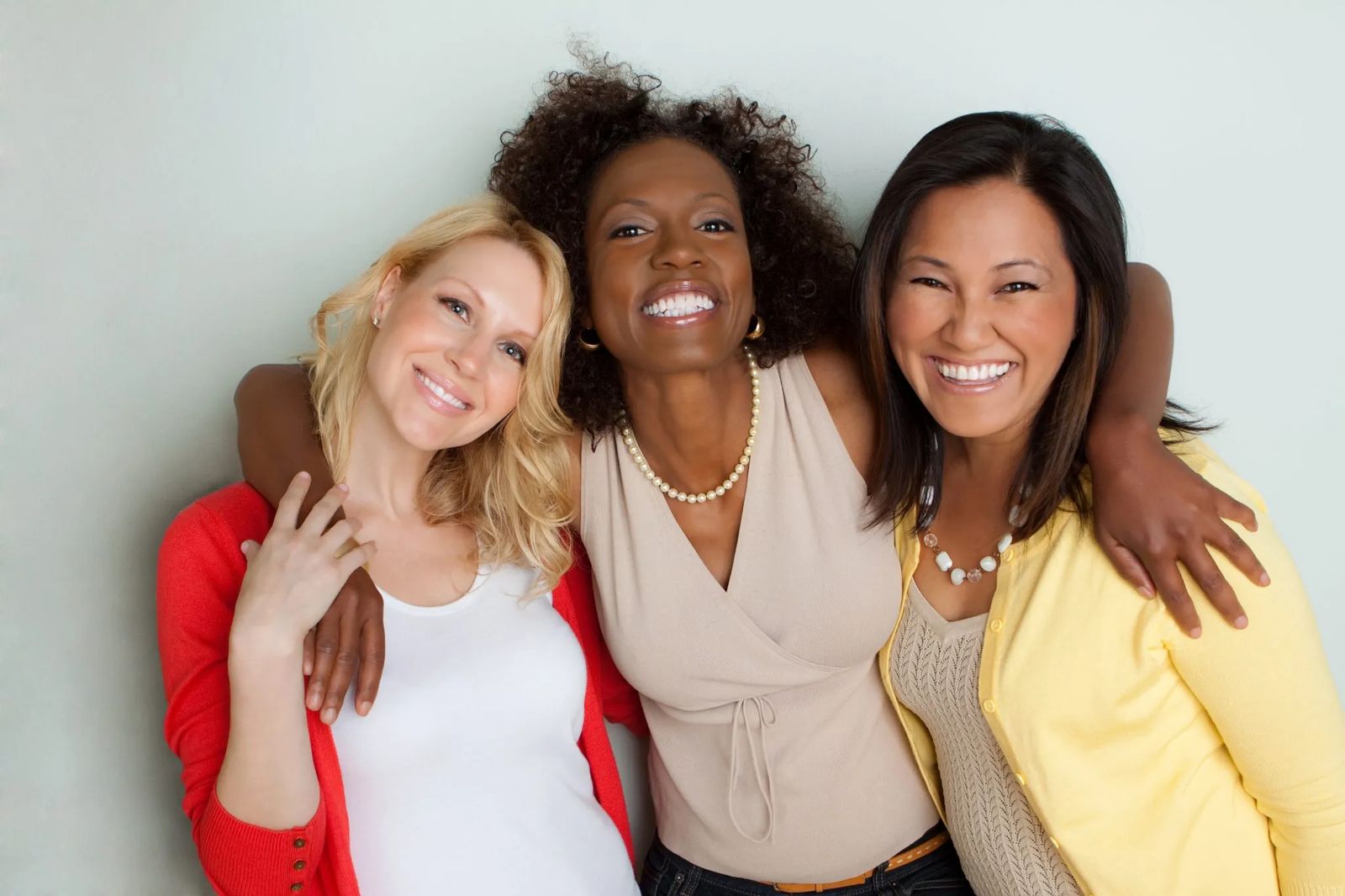
Fab, Fit & 40
Resolutions to conquer the challenges and changes of mid life
While every season of life brings joys and new discoveries, perhaps no season challenges us more than the decade of our 40s, described by journalist and author Gail Sheehy as “the old age of youth and the infancy of adulthood.”
During this season, we might experience burgeoning career opportunities, perhaps slightly more independence from parenting responsibilities and more freedom with time. But, through it all, we might also be trying to reconstruct who we are and what we do based on our needs and bodies.
“We have to pay attention to what our bodies need now and not try to be somebody else,” says Bridget Eckley, a physician assistant specializing in women’s health at Billings Clinic West. One of the biggest challenges for women is understanding that the 40s should be a season of grace, she says.
“We compare ourselves to celebrities, to other body types, our sisters and even our 20-year-old self,” Eckley says. “It’s ridiculous. We need to give ourselves grace. We need to pay attention to our own metabolism slowing down and hormone changes, which both affect our weight and our energy.”

THE HORMONAL YEARS
“In a woman’s body, there is no set time for hormone and menopausal changes,” Eckley says. “Our hormones change every day.” Also, she says, by way of clarification, “Everybody who is in their reproductive years is technically pre-menopausal.” The fact is, menopause hits when a woman hasn’t had her menses for 12 consecutive months.
“The average age for menopause in America is 51 years old,” Eckley says. “Hormones coming from our brains to our ovaries begin to have shorter and shorter pulses.” That means those dates on the calendar get closer together, throwing the cycle we knew out the window, and that can start in a woman’s 40s. That’s why Eckley encourages women to keep their annual appointment with their OB-GYN doctor.
“Women put off visiting with their physician and then by the time they come in, they think something very serious is wrong,” she says. “If they come in, we can talk about the changes a woman can expect before the anxiety and fears set in.”
Bridget Eckley, Billings Clinic West physician assistant
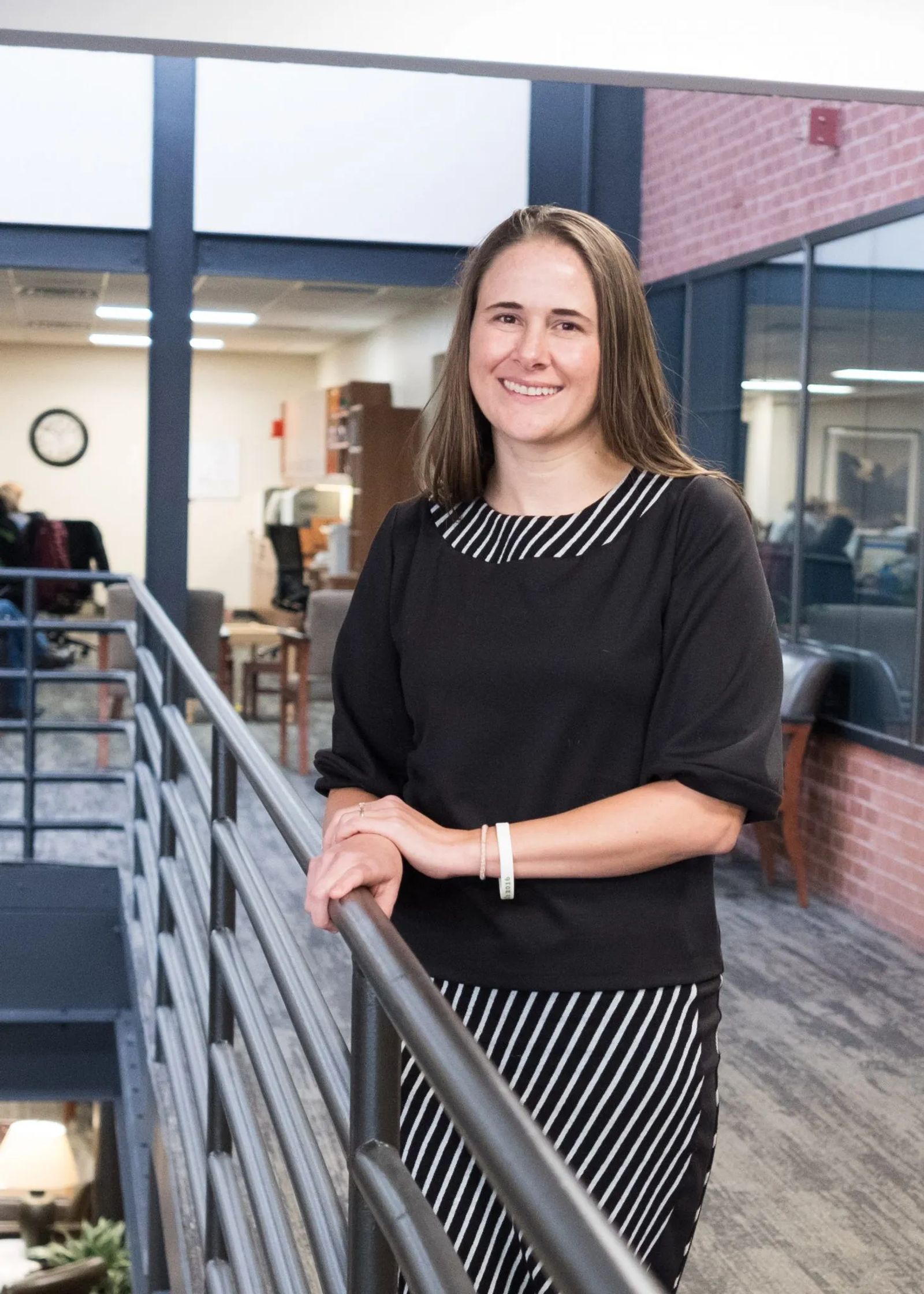
Family doctors shouldn’t be avoided either. Hormonal shifts aren’t the only major concern when this stage of life hits.
“Ovarian cancer, uterine cancer or endometrial problems are all things that we need to screen for,” Eckley says. “Heart disease has killed more people than cancer. Heart health is vastly under talked about.”
She always encourages her patients by telling them the best medicine is simply taking care of yourself and getting enough rest. “A lot of women are busy, tired and stressed,” Eckley says. “They are doing everything extra because they are caring for everybody else. But it is essential they rest for their bodies to recharge.”
TALK ABOUT YOUR HEALTH
Registered Dietitian Paige Cross, LN, also emphasizes the importance of talking with our medical providers about this phase of life.
“We spend way more time talking to our daughters about puberty than we do studying our own body,” she says. “We are taught to be conservative about talking about ourselves, but we need to open up.”
Registered Dietitian Paige Cross, LN
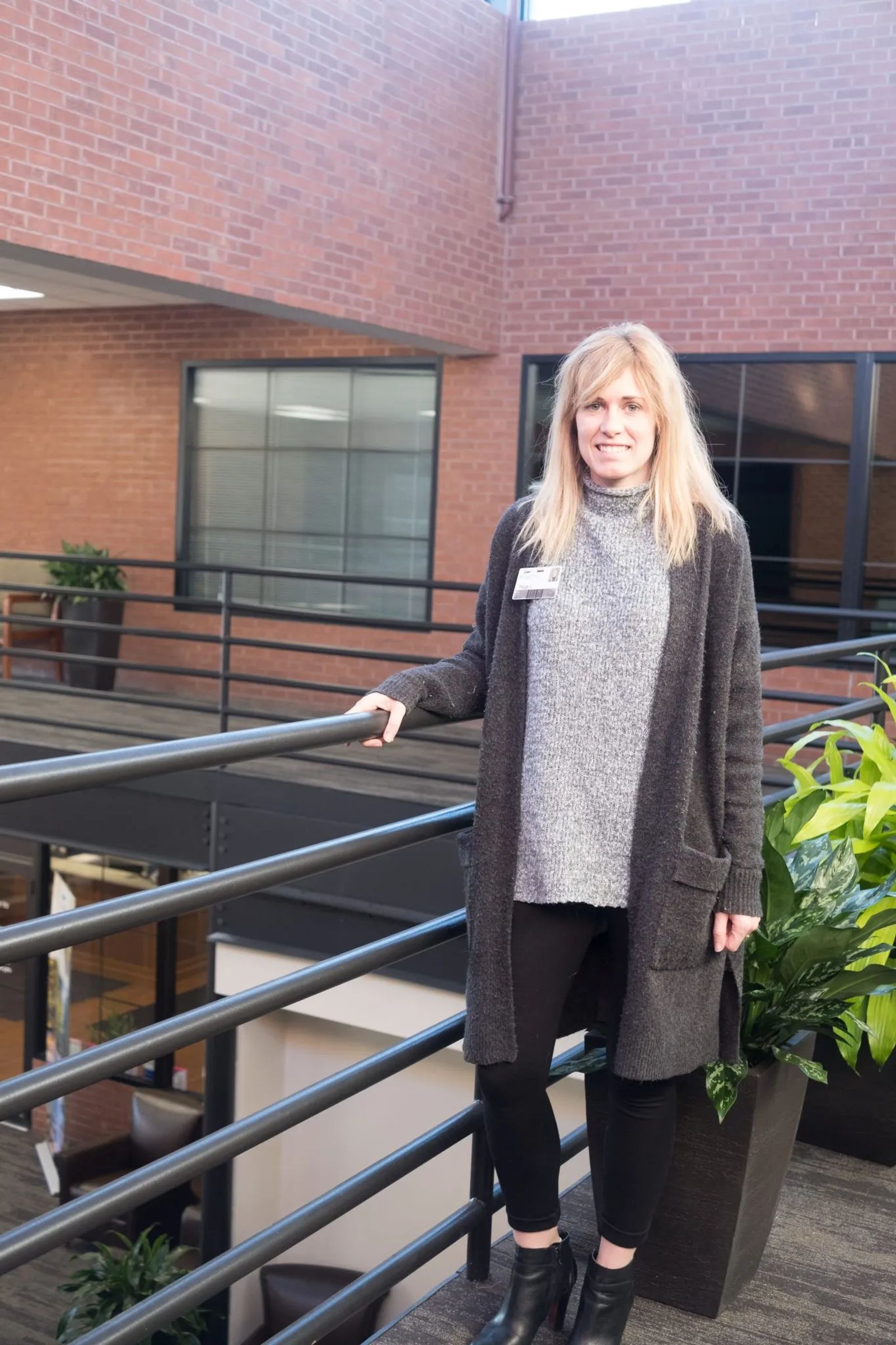
Cross’s recommendations for combating frustration with health in our 40s sounds all too familiar.
“We should be getting seven to eight hours of sleep a night,” she says. “Our body uses that sleep to reset our metabolism.” While recognizing how difficult it can be for busy women to get that much sleep, Cross simply recommends that we “set priorities around getting enough rest so we have enough energy throughout the day.”
PAY ATTENTION TO YOUR PLATE
When it comes to what we put on our plate, Cross recommends looking for a diet protocol that is sustainable and fits into our families.
“Make room for fruits and vegetables,” she says. “Eat whole grains and real food as much as you can, not processed food. We really need five servings of fruits and veggies a day, one cup or half-cup cooked servings.” And, she says, don’t forget at least seven to eight cups of sugar-free, caffeine-free fluids a day, with water being the best choice.
And in response to all we hear about gluten-free, dairy-free, paleo, vegan, vegetarian and organic foods, Paige recommends listening to our bodies.
“You have the most knowledge of your body,” she says. “If you truly don’t feel great after eating something, try eliminating it. However, if you are eliminating whole food groups or half of what you normally eat, you certainly should go see your provider.”
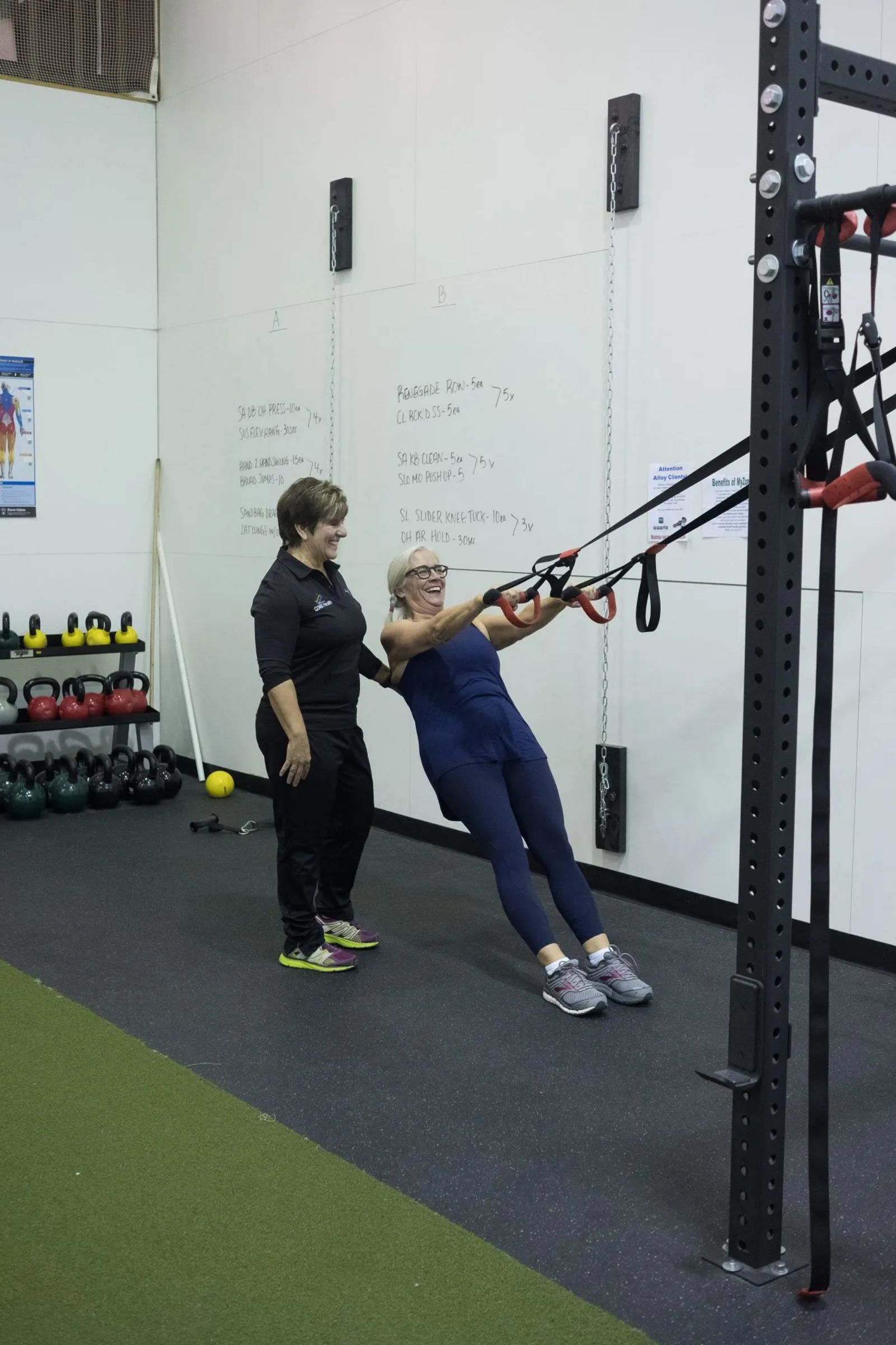
GET MOVING
When it comes to fitness, are you moving 30 minutes a day, five times a week? If not, Cross says, maybe it’s time to find something you enjoy. How about a family walk? Is there a fitness class you might like taking?
“Exercise can be as little as 10 minutes at a time of strength or cardio,” she says. “If you aren’t exercising at all, you might want to start with 10 to 30 minutes once or twice a week.”
Suzie Eades, a personal trainer, offers further advice.
“Do yourself a favor and engage in physical activities that fill you up and at the end of it you feel accomplished,” she said. At 56, Eades has had a variety of fitness-related jobs, including operations director for Big Sky State Games and fitness director at the Billings Athletic Club. She’s owned a personal fitness business and currently owns a race company. Eades is a big believer in strength training.
Personal Trainer Suzie Eades
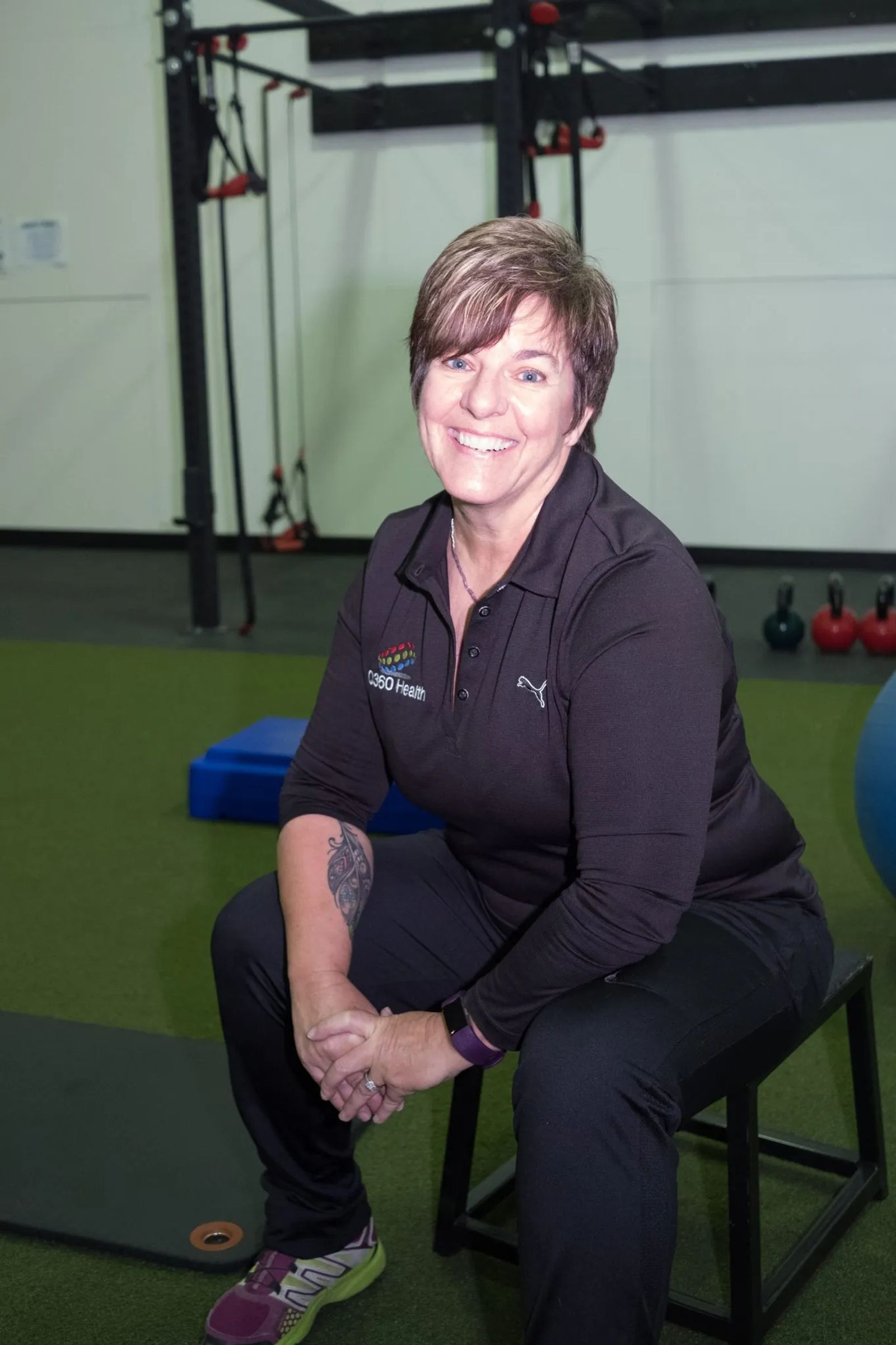
“One of the biggest reasons women start to gain weight into their 40s is because they are losing the lean muscle that helped keep their daily calories burning higher,” Eades says. While cardio training may help you burn fat, Eades says strength training will help transform your physique. “Between a demanding career and family obligations, life can get stressful. A good workout session will release a nice dose of endorphins.”
Asked what she wishes someone had told her in her 40s about fitness, she says, “I wish somebody would have told me that it is not all or nothing. Growing up very competitive in sports from junior high through college, I carried the 'all or nothing' mentality through my 40s. I was putting great pressure on myself about training hard and experienced guilt when I wasn't working out.”
That’s why she encourages her clients to find something they enjoy, and just do it. “Do something that makes you happy,” she says. “Carve it in. I've learned that there is a big difference between being selfish and self-care.”
GOLDEN ADVICE
Perhaps the best advice from Eades is also the simplest.
“You are enough,” she says. “You can be enough by being an active and healthy mom, partner, wife, sister and friend. When they are with you give them your full attention. Be present. But no matter what — you are enough.”











